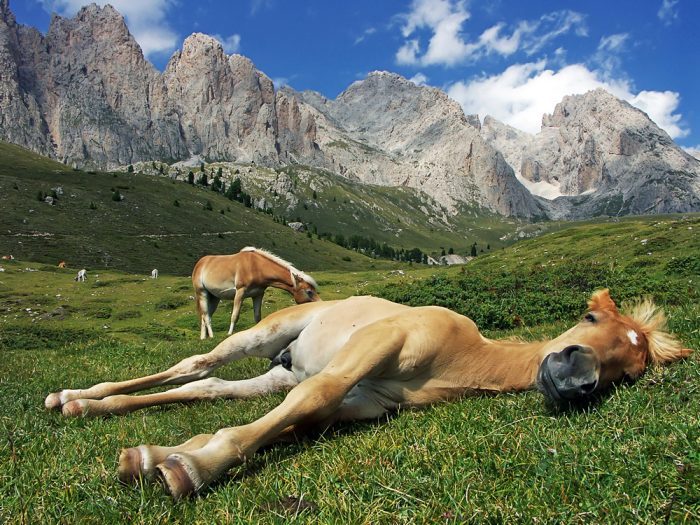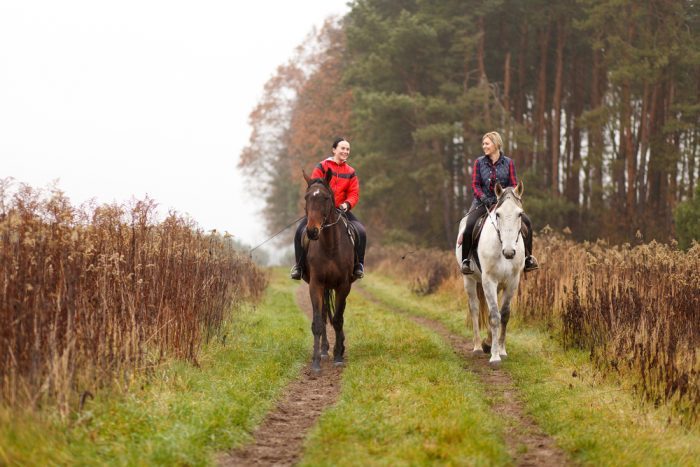I have an eighteen year-old retired Polo horse that suffers from a syndrome known as “Tying Up.”
This happens after a horse with this specific genetic marker and disease has an exercise burst outside of their normal work. For example, if I turn out my horse out into an unfamiliar pasture, he starts running around like crazy… and then it starts. The symptoms are profuse sweating, walking with a limp, blowing and shaking. Tying up is hard to treat, too.
“Tying up” in horses is similar to magnesium shortage in humans. If left untreated, it can lead to kidney shutdown, metabolic breakdown and death.
The traditional medicinal response is to give the horse two milligrams of “bute.” Bute is an NSAID for horses, similar to Motrin or Tylenol. It can cause liver damage and increases colic. The tube for a one-month supply is $42USD.
How do I Treat His Tying Up now?
Instead of that, I now use a full tablespoon of my cannabis oil directly over his back, and massage while hot walking. And I’ll smear a 1/2 tsp onto his gums.
NOTE: too much cannabis oil will knock down a horse into a snoring 900 lb stoner… so be conservative.
Now, veterinarians and the horse world will scream from the rafters not to walk your horse while its tying up. I disagree. The movement and application of the oil speeds up the muscle relaxation and allows the body to cool down, not in a panic. Do you want to stand in one place while your body is squeezing you?! No!
In under five minutes he’s returning to normal.

My experience is personal, and has come with lots of self testing and being willing to let go of the “vet knows best” long enough to trust my instincts.
With cannabis oil on hand, and adding selenium and vitamin E into my big guy’s daily diet, we haven’t had a TU since this summer!
Do what is best for your barn, but this is what worked for me.
From RxLeaf: The Medical Explanation for Tying Up
There are many common names for this equine affliction: Exertional Rhabdomyolysis, Tying-up, Azoturia, Monday Morning Sickness, and Poly Saccharide Storage Myopathy are only a few of them.
The scientific name is rhabdomyolysis. It is a problem with muscle metabolism, which leads to massive cramping in two areas of your horse’s body (along with the spin and on the rump).

While muscle cramping may not seem like such a big deal (we humans get muscles cramps all the time), in horses, the scale and severity of rhabdomyolysis can lead to death. The cramping physically damages the muscles, leading to the secretion of myoglobin into the bloodstream, through to the liver. A build-up over time may lead to more severe repercussions.
Is Cannabis for Horses a Good Idea?
What the above story doesn’t address is what kind of cannabis is used in the muscle-relaxing rub down. Crucially, not all cannabinoids are safe for consumption by horses. Horses, cats, and dogs all have significantly higher numbers of CB1 receptors, and THC strongly binds to this receptor. THC is toxic to most animals.
If any of the above pets consume cannabis with THC, their systems quickly get overwhelmed. THC leads to extreme discomfort for horses and even death as reported by some veterinarians.
Therefore, when working with horses and considering cannabis as an alternative to conventional medicines, always work with hemp-derived products. Look for CBD-only, and avoid anything with THC.
While there isn’t a ton of information about cannabis for horses, what we do know about THC and our furry friends is cause for concern. Hemp-derived products contain under 0.3 percent CBD, and according to these anecdotal reports, it should be safe for consumption. If you are going to treat tying up, stick to CBD options.

CBD Rich Hemp Oil to Treat Tying Up
Even for humans, there are few clinical trials available on CBDs therapeutic benefit. Yes, there is an ever-growing body of support for CBD as medicine, but the clinical trials are still slow to publish.
But what about CBD for horses, or to treat tying up? At the time of writing, there were no trials on the benefits (or risks) of CBD for an equestrian patient. Which means, there is no scientific support (yet) on CBD to treat Tying Up.
With that caveat out of the way, horses and humans both have an endocannabinoid system. This means we can draw a few conclusions from the studies done on humans as well as from the many personal stories told by horse owners.
According to Horse Talk, there is a suggestion that CBD could help treat:
- Arthritis and pain
- Anxiety and stress
- Ulcers
- Healing from injury
- Immune system disorders
- Inflammation
- Insulin resistance
Cannabidiol is a noted anti-inflammatory, with substantial preliminary evidence for pain relief and anxiety. In humans at least, there is substantial evidence showing cannabis (note, not just CBD) may help reduce muscle spacisty as related to Multiple Sclerosis.

Combined this information tells us CBD may truly have some effect for Tying Up or rhabdomyolysis. Again, this theory is based on a combination of early scientific study and personal stories like the one listed above – but for the desperate horse owner, it may be worth a try.
If you are interested in CBD for horses, speak with your veterinarian. While the veterinary community at large remains conservative to their approach to all things cannabis, many individual vets have a much more liberal approach. Depending on where you live, you may be able to find one who uses it within their own practice. Do your research first, but once armed with the knowledge that it may be a good alternative.


